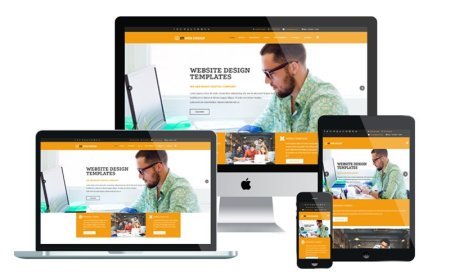13 Event Registration Tips to Consider for Your Upcoming Event

Event registration is a critical first touchpoint that can set the tone for your entire event experience. A smooth, user-friendly registration process can significantly impact attendee satisfaction and event success. In this comprehensive guide, we'll explore thirteen essential event registration tips that will help you streamline your process, enhance the attendee experience, and maximize your event's potential.
1. Simplify Your Registration Form
The foundation of effective event registration lies in creating a straightforward, user-friendly form. Complex and lengthy registration processes can discourage potential attendees from completing their sign-up. Focus on collecting only the most essential information, such as name, email, and specific event-related details. Each additional field you add increases the likelihood of abandonment, so be strategic about what you request. Consider using a progress bar to show participants how close they are to completing their registration, which can motivate them to finish the process.
2. Optimize for Mobile Responsiveness
In today's digital landscape, a significant portion of event registrations occur on mobile devices. Ensuring your registration platform is fully responsive and mobile-friendly is no longer optional—it's imperative. Your registration page should load quickly, display correctly on various screen sizes, and allow easy input of information through mobile-friendly interfaces. Test your registration process on multiple devices and screen sizes to guarantee a seamless experience for all potential attendees.
3. Leverage Advanced Event Registration Tools
Modern event registration solutions offer far more than basic sign-up capabilities. Look for tools that provide features like automatic confirmation emails, integration with payment gateways, real-time reporting, and attendance management systems. Platforms such as Dreamcast, Cvent, and many others offer comprehensive solutions that can significantly simplify your event planning process. These advanced tools can help you track event registrations, manage capacity, and generate valuable insights about your attendees.
4. Create Clear and Compelling Pricing Tiers
Transparency in pricing is crucial for building trust with potential attendees. Clearly display different registration tiers, early bird discounts, group rates, and any additional fees. Consider implementing early registration incentives to encourage quick sign-ups and create a sense of urgency. Use clear, concise language and make sure the value proposition for each pricing tier is evident. Highlight what's included in each ticket type to help attendees make informed decisions.
5. Implement Multiple Payment Options
Having a variety of payment options can greatly ease the registration process. To satisfy varying attendance preferences, integrate several payment methods, such as PayPal, credit card processors, and digital wallets. Make sure your payment system offers unambiguous transaction confirmations and is safe. To make participation more accessible, think about providing choices such as installment payments for more expensive events.
6. Design an Intuitive User Experience
The user experience of your registration process should be seamless and intuitive. Use clean, professional design principles with clear navigation, readable fonts, and a logical flow of information. Break down the registration process into digestible steps and provide clear instructions at each stage. Use visual cues and minimalistic design to guide attendees through the registration journey with minimal confusion.
7. Provide Comprehensive Event Information
Your registration page should serve as a comprehensive information hub about the event. Include essential details such as date, time, venue, agenda, speaker information, and any special requirements. The more transparent and informative you are, the more confident potential attendees will feel about registering. Consider adding FAQs, event highlights, and potential networking opportunities to increase appeal.
8. Implement Strong Data Privacy Measures
With increasing concerns about data privacy, it's crucial to be transparent about how you'll use attendee information. Clearly communicate your data handling policies, ensure compliance with regulations like GDPR, and provide options for attendees to control their data. Include visible privacy statements and obtain necessary consent during the registration process.
9. Offer Personalization and Customization
Modern event registration platforms allow for significant personalization. Enable attendees to customize their experience by selecting specific sessions, meal preferences, or networking interests. Provide options for adding companions, selecting specific time slots, or choosing add-on experiences. This level of customization can make attendees feel more engaged and valued.
10. Utilize Automated Communication Strategies
Effective communication is key to successful event registration. Set up automated email workflows that send confirmation emails, reminders, event updates, and post-event surveys. These communications should be personalized, timely, and provide value. Use segmentation to send targeted information based on attendee type, interests, or registration tier.
11. Implement Robust Capacity Management
Effective capacity management is crucial for events with limited spaces. Use registration tools that provide real-time tracking of available slots, waitlist management, and automated notifications when spaces are filling. This creates a sense of urgency and helps manage attendee expectations. Consider implementing a waitlist system that automatically notifies potential attendees if spots become available.
12. Provide Exceptional Customer Support
Even with the most user-friendly registration system, some attendees will require additional assistance. Offer multiple channels of support, such as live chat, email, and phone support. Consider implementing a comprehensive FAQ section and providing clear contact information for technical or registration-related queries. Quick and helpful support can significantly enhance the overall registration experience.
13. Continuously Analyze and Improve
Treat your registration process as an evolving system. Regularly analyze registration data, track conversion rates, and gather feedback from attendees. Use analytics tools to understand where potential attendees might be dropping off and continuously refine your registration workflow. A/B test different designs, messaging, and user flows to optimize your registration process continually.
Conclusion
Effective event registration is a delicate balance of user experience, technological capability, and strategic communication. By implementing these thirteen tips, you can create a registration process that not only captures essential information but also builds excitement and anticipation for your event.
Remember, your registration process is often the first interaction potential attendees have with your event. Make it count by being professional, user-friendly, and engaging.
What's Your Reaction?



























































